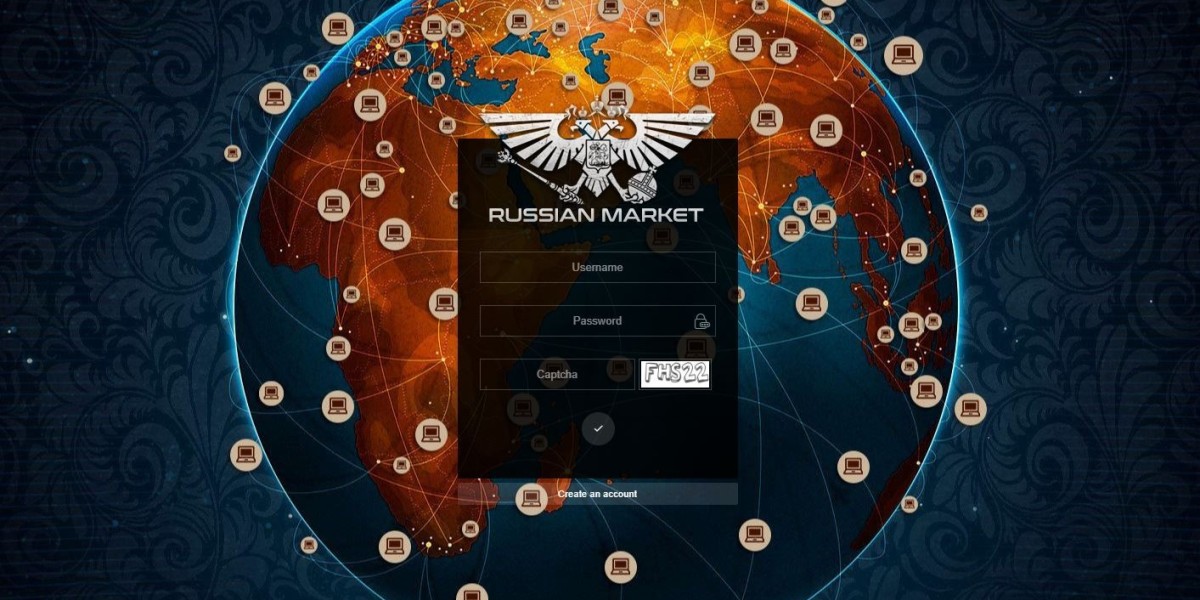The dark web is home to some of the most notorious black markets in the world, and Russian market sits high on that list. Known for selling vast amounts of stolen data, this underground marketplace has become a significant player in the global cybercrime economy. Let’s peel back the layers of this shadowy corner of the internet.
What is RussianMarket?
RussianMarket is a dark web marketplace that specializes in the sale of stolen financial data, personal identities, and digital access credentials. It has gained infamy for its simplicity, accessibility, and vast inventory of compromised information.
Why It's a Hot Topic in Cybersecurity Circles
In the cybersecurity world, russianmarket is a recurring headache. Every breach, leak, or scam often leads investigators back to this platform. It’s not just another carding site — it’s a symbol of how accessible and industrialized cybercrime has become.
History of RussianMarket
Nobody knows the exact origins of RussianMarket, but cybersecurity experts trace its rise back to the mid-2010s. It gained traction quickly thanks to an easy-to-use interface and a reputation for delivering “quality” data. Many believe it originated from Russian-speaking operators, hence the name.
Who’s Behind It?
The identities of the site’s operators remain a mystery. It is presumed to be run by seasoned cybercriminals with deep technical knowledge. Authorities have only managed to catch low-level vendors — the masterminds still elude capture.
Access and User Interface
Unlike some dark web platforms that require extensive vetting or referrals, RussianMarket is shockingly easy to access for anyone with a Tor browser. Its UI is surprisingly clean, almost like a minimalist e-commerce store.
Registration Process
Signing up doesn’t demand much — an alias, a password, and you’re in. This low barrier makes it a hub for both novice hackers and seasoned fraudsters.
How Anonymity Is Maintained
The marketplace leverages Tor for hidden service hosting and only accepts cryptocurrencies like Bitcoin and Monero. These choices help ensure both buyers and sellers stay anonymous.
Stolen Credit Card Data
This is the bread and butter of RussianMarket. Credit card dumps, CVVs, and fullz (full identity profiles) are uploaded and sold by vendors around the globe. Cards are categorized by region, bank, and type.
Banking Credentials
RussianMarket doesn’t stop at cards. It also offers online banking logins and account numbers, often paired with phishing kits to steal more data.
PII – Personal Identifiable Information
Think full names, addresses, social security numbers, driver’s licenses — all up for grabs. This data is often used for identity theft or synthetic identity creation.
Malware and Hacking Tools
The market also peddles malware, keyloggers, remote access tools (RATs), and even exploit kits. It’s like a one-stop shop for aspiring hackers.
Cryptocurrency Usage
Everything on RussianMarket is priced in crypto. Most transactions are in Bitcoin, but privacy coins like Monero are increasingly favored for their stealth.
Pricing Structures
Prices vary. A single credit card might go for $10, while full identity kits can fetch upwards of $100. Verified banking logins? Those can cost hundreds.
Escrow Services
To build trust, RussianMarket provides escrow services — acting as the middleman to hold funds until both parties are satisfied. Of course, there are still risks of scams.
RussianMarket vs JokerStash, BriansClub, Genesis
While JokerStash and BriansClub once dominated, RussianMarket's simplicity and consistent uptime made it a reliable alternative. It doesn’t have the prestige of JokerStash but has grown due to its resilience and volume of offerings.
Vendor Verification
The site vets vendors through a mix of peer reviews and admin screening. Established vendors get badges and rankings, making it easier for buyers to assess risk.
Buyer Protections
Buyers rate vendors based on delivery, data quality, and communication. These reviews influence who gets more business — or gets booted.
Typical Users
From low-level scammers to organized crime rings, users come in all shades of criminal. Many are beginners looking to “learn the ropes,” while others are full-time fraudsters.
Law Enforcement Investigations
Global law enforcement agencies are constantly trying to shut RussianMarket down. Despite a few seizures of similar platforms, this one has remained slippery, avoiding major takedowns thus far.
Why It's Hard to Shut Down
Dark web markets are decentralized, hosted anonymously, and rely on international servers. Even if the hosting is found, the operators often remain hidden behind layers of encryption and aliases.
Cybersecurity Impact
Every transaction on RussianMarket potentially victimizes real people. Stolen identities can ruin credit, enable fraud, and create cascading legal problems for the unsuspecting victims.
The Ethics Behind It
Cybercrime may feel distant or digital, but its effects are very real. There’s an ethical crisis around those who enable and participate in these markets — and the victims they leave behind.
Risks of Browsing RussianMarket
Even visiting such sites poses risks: malware infections, honeypots set by law enforcement, and phishing traps. Many who go exploring find themselves compromised instead.
Is RussianMarket Still Active?
As of the latest updates, RussianMarket is operational. However, access is sometimes limited or restricted due to DDoS attacks or maintenance.
What’s Next for RussianMarket?
Dark web markets evolve. RussianMarket could vanish tomorrow — or rebrand under a new name. The model works, and as long as there's demand, something will take its place.
Conclusion
RussianMarket remains one of the most active and accessible hubs for illicit data trading on the dark web. While it may not have the legacy of JokerStash or the prestige of Genesis Market, its impact is undeniable. As long as people seek stolen data and as long as the digital underground thrives, platforms like RussianMarket will continue to rise, fall, and re-emerge in new forms. Vigilance, awareness, and cybersecurity hygiene are our best defenses in this digital wild west.






